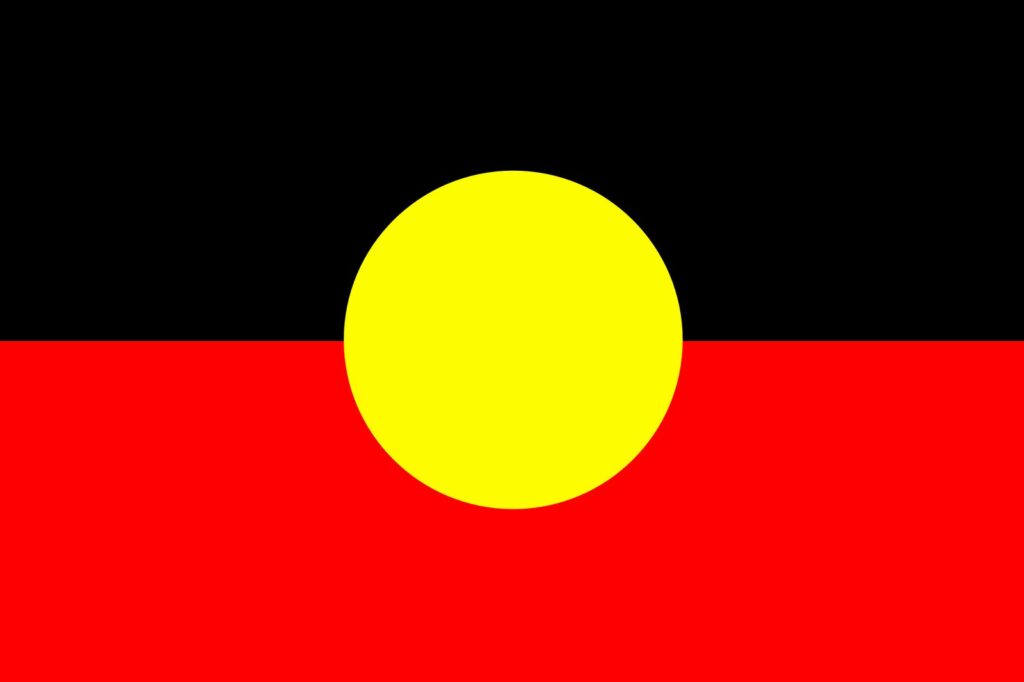HIGHWAY IS TAKING A DIFFERENT ROAD.
THE SCIENCE BEHIND OUR WORK
What Science says
Instead of trying to fix young people, we help young people to uncover who they are and to travel with them on their journey in life. We create a safe space for self-understanding, friendship and inspiration to take the path that allows them to be the best version of themselves. Here is the research that has brought us to this crossroad.
There must be a different Road. Mental Illness and Loneliness are on the rise especially for Young People
There are 4 million youth aged 12 to 24 years representing 20% of Australian population1. Today’s world is increasingly volatile, uncertain, complex and ambiguous. Young people need to manage their emotions and mental health, relationships and social networks, school and stress, whilst dealing with unprecedented changes brought on by the global pandemic and economic recession. For a young person, they need to be able to respond and adapt quickly to the rapidly changing world. They need to be ready for careers that may not even exist today, with very little or no security.
It comes as no surprise then that depression and anxiety have increased, worldwide, by nearly 20% in the last 15 years, costing the global economy US$1 trillion each year2.
In Australia, The National Survey of Mental Health and Wellbeing found that one in four young people experience a clinically relevant mental health problem within any 12-month period3. The Productivity Commission estimates that the cost of mental ill-health and suicide is approximately $500 million per day4, and recommends extensive policy changes across systems, sectors and services to mitigate the worsening situation.
The Young Australian Loneliness Survey commissioned by VicHealth is the first known study to examine loneliness severity in a large cohort of young Victorians aged 12 to 25 years. This report is in line with the new VicHealth Mental Wellbeing Strategy 2019–2023 on promoting social connections among young people. Young adults aged 18 to 25 years old reported significantly more problematic levels of loneliness when compared with adolescents aged 12 to 17 years5.
Loneliness and social isolation risk are related but more importantly, loneliness increases the likelihood of poorer mental health outcomes in adolescents and young adults5. These alarming statistics show that current programs and services are not meeting the needs of young people. As a society we wait till our young people have become unwell. Is there another way?
Programs that can modify the way we think and manage our social relationships as well as those that provide additional safe social opportunities may yield the positive outcomes for adolescents and young people. It is possible that early intervention programs that focus on promoting good social health before 18 years of age may also protect young people from developing more problematic levels of loneliness in early adulthood.
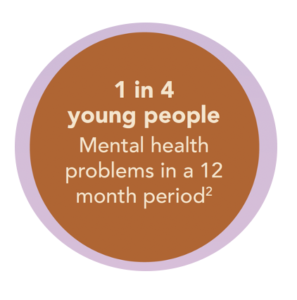
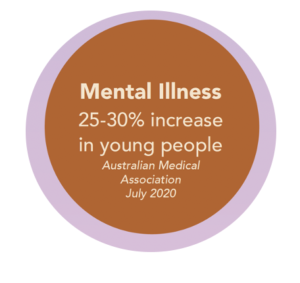
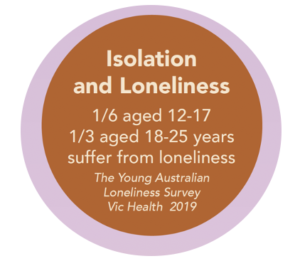
Young people want to work out what the right road is for themselves.
Peers are the most important resource in helping them make decisions. Highway believes that every young person has an important voice and unique perspectives, with untapped potential to discover their own solutions to the various challenges in their lives. Research clearly indicates that young people value relationships, particularly with their peers6,7. When youth have problems, the majority first turn to their friends for help. Young people also frequently turn to the internet as an important source of help. There are several factors that prevent youth from seeking help, ranging from the fear of having to disclose information to an adult, stigma, feeling embarrassed for seeking professional help, or fear of judgment from others8,9. There are also practical reasons such as being able to afford professional services, having transportation to get to a service, having sufficient time to travel and receive professional help, or being able to access local services8, 9. Whilst there are federal and state initiatives to help young Australians deal with poor mental health, there’s a clear lack of funding and services which provide youth with relevant, timely and relatable support that meet their current needs.
A Melbourne survey of over 4,500 Australian youth, between the ages of 10 to 20, reported that social support is essential for youth wellbeing10. In response to the question “What makes a good life for you?”, young people reported having friends, family, support and care from others as top social factors for a good life. Even though youth value relationships, 1 in 4 reported that they don’t have someone to go to when they have a problem10. One in two reported that they avoid talking to their parents about their problems, with 46% indicating that their parents do not understand what they are going through10. Nearly 45% of youth reported that they often feel misunderstood and alone, with levels of loneliness increasing across the secondary school years.10
Similar findings were also reported by VicHealth in the young Australian loneliness survey. Loneliness was linked with poorer physical and mental health outcomes, with lonely youth more likely to experience social anxiety and depressive symptoms, and have more negative affect5.
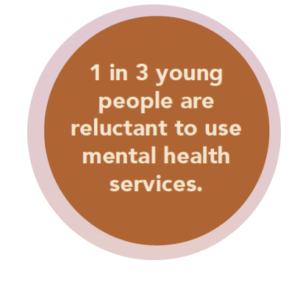
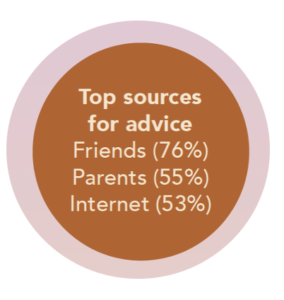
Young people can be inspired by the destination. Positive and authentic goals can move young people to take action.
Wellbeing is commonly described as feeling good and functioning well11, 12. There are three psychological needs essential for growth and optimal functioning13, 14. Autonomy is our need to be able to make our own choices about what we do14. Competence is the need to experience mastery and the ability to achieve our planned goals14. Relatedness is our need to feel a connection with and a sense of belonging to our social environment14. For young people, self-determination can be achieved by fulfilling these basic needs. By changing the conversation from ‘what problems do you have’ or ‘what’s wrong with you’ to ‘what would you like to focus on’ or ‘why do you want to achieve that goal’, we can empower our youth to refocus their mindsets, goals and actions. Through powerful and authentic conversations that uncover what is important to a young person, they can be intrinsically motivated to achieve their goals. This occurs through youth facilitated sessions, where a group of like-minded young people are supported to become self-motivated and respectfully connected young adults. Research shows that such approach goals are linked with less loneliness and greater satisfaction with social relationships15.
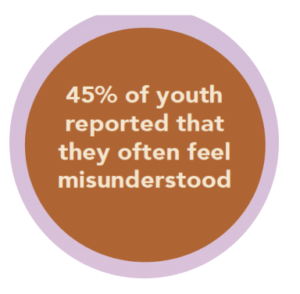
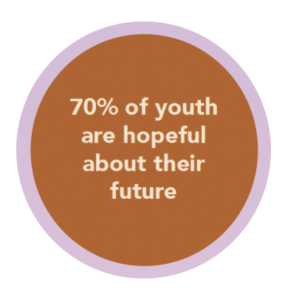
To engage young people we need to meet them in their world.
We need to utilise the online world to reach out to young people effectively. Australian youth spend more time online than any other age groups, with 91% using the internet for social networking16. This is not surprising as research indicates that Australian youth value relationships, particularly with their peers and families6. Technology in the digital age now enables youth to meet new people online. Nearly 1 in 4 youth reported making friends with someone they first met online17. Whilst the accessibility is useful, the eSafety Commissioner reported some negative impacts. For example, 36% of youth did not feel good about themselves, 35% felt negative emotions like anger, sadness, fear, helplessness, and 24% felt left out or lost friends over social media17. This clearly demonstrates the need for the creation of a safe, online platform for youth to connect. It is now timely to harness the digital technologies to provide a safe, facilitated online space for like-minded young people, to connect and inspire one another on their personal journeys, to discover their self-determination, personal meaning and purpose.
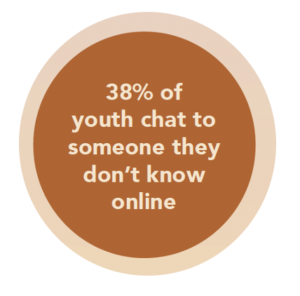
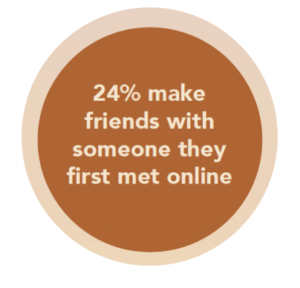
Would you like to get inspired about your life?
Join a Highway session today.
If you would like to explore what’s going on for you today, then just jump on! You will be welcomed to a safe, warm, non-judgemental space where you can be yourself and uncover what is important to you.


Donate and inspire
young people to a
positive pathway in life.
Giving all young people the gift of being
heard, connected and feeling empowered to
follow their path to becoming the best
versions of themselves.



